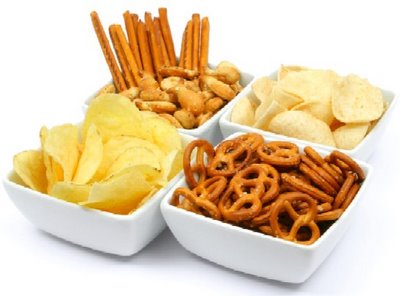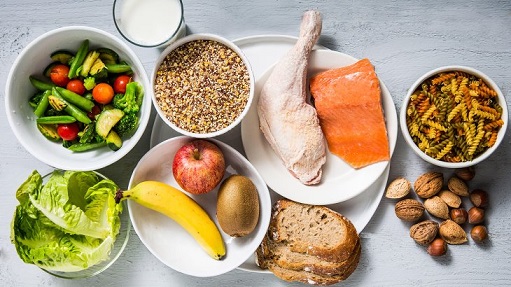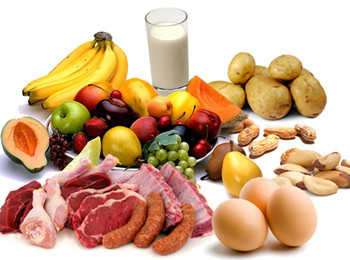 Every organ in your body has a unique purpose that works in tandem with all of your other organs. The kidney is used to filter waste products from the blood, regulate blood pressure, balance electrolytes, and regulate red blood cell production. While you can live with just one kidney, it is important to watch out for signs of chronic or acute kidney failure.
Every organ in your body has a unique purpose that works in tandem with all of your other organs. The kidney is used to filter waste products from the blood, regulate blood pressure, balance electrolytes, and regulate red blood cell production. While you can live with just one kidney, it is important to watch out for signs of chronic or acute kidney failure.
- Chronic kidney disease or failure occurs when there is a general loss in kidney function. Chronic kidney disease may not become so obvious until the function is seriously damaged.
- Acute kidney failure happens when the kidney is suddenly unable to remove waste products from your blood. Sudden acute kidney failure can then result in the dangerous accumulation of waste and a chemical imbalance in your blood.
Causes of Kidney Failure
Some diseases and conditions may cause kidney failure, and these diseases and conditions may be various according to the types of kidney failure.
|
Kidney Failure Types |
Possible Causes |
|
|
Chronic Kidney Failure |
|
|
|
Acute Kidney Failure |
Blood Flow Slowly |
|
|
Kidney Damage |
|
|
|
UrinaryBlockings |
|
|
Symptoms of Kidney Failure
Kidney failure symptoms have been listed in the following form. They will be different according to the types of kidney failure.
|
Acute Kidney Failure |
Chronic Kidney Failure (CKF) |
||
|
Symptoms |
Symptoms of CKF at early stage |
Symptoms of CKF at late stage |
|
|
|
|
|
Treatments of Kidney Failure
Kidney failure symptoms can sometimes be very uncomfortable and sometimes serious. And it's important to get treatments early to avoid unnecessary complications.
1. Medical Treatments
Hemodialysis is the process of using a dialyzer, a canister connected to the hemodialysis machine. The dialyzer functions as an artificial kidney that your blood travels through, after flowing through a series of tubes, to remove wastes, extra salt and extra water before returning back to your body through another series of tubes. Usually three times a week, the treatment can last from three to five hours or longer, during which you can read, write, sleep, talk, watch TV, do crossword puzzles, or even do a simple craft like cross-stitch or knitting.
- Peritoneal Dialysis
A small catheter is placed into your belly, through which a mixture of minerals and sugar—called dextrose—dissolved in water draw wastes, chemicals, and extra water from your blood into the peritoneal membrane, and then into the dialysis solution. The entire process requires an exchange of draining and refilling, which means that waste would be drained out through a tube before refilling your abdomen with a fresh dialysis solution.
- Transplantation
Sometimes the best treatment for end-stage kidney failure is to receive a new kidney from either a living or deceased donor. Due to development of specific and less toxic immunosuppressant drugs during the last decade, a higher success rate has come with kidney transplants nowadays. A kidney transplant means that the donated kidney is placed into your body and the failing kidney is removed. After surgery, you will be provided with medications to prevent the new kidney from being rejected by your body.
2. Avoid or Limit the Following Foods
Besides medical treatments dietary changes are also necessary to relieve kidney failure symptoms.
 Salted Foods
Salted Foods
Watch out for foods with added salt or naturally high in salt, such as canned vegetables, processed meats, cheese, frozen dinners, and fast food. Eating less salt will prevent complications in your blood vessels, allowing the kidney to do its work. Foods with less salt will include most naturally organic products.
 Potassium Foods
Potassium Foods
Low potassium foods include apples, cabbage, green beans, grapes and strawberries. Be sure to avoid potatoes, tomatoes, spinach, oranges and bananas, as these foods are typically higher in potassium and can be difficult for the kidney to process.
- Protein Foods
 While most health conscious eaters find it important to eat a lot of protein, those at risk of chronic kidney failure should avoid foods high in protein. Foods high in protein will be eggs, lean meats, beans, cheese, milk, etc. Low protein foods will be fruits, vegetables, and grains.
While most health conscious eaters find it important to eat a lot of protein, those at risk of chronic kidney failure should avoid foods high in protein. Foods high in protein will be eggs, lean meats, beans, cheese, milk, etc. Low protein foods will be fruits, vegetables, and grains.
- Phosphorus Foods
 Lastly, you should avoid phosphorous, which is a mineral found in some foods that can weaken your bones and cause itchiness when you have too much in your blood. Foods that have phosphorus are dairy, nuts and nut butters, and dried beans.
Lastly, you should avoid phosphorous, which is a mineral found in some foods that can weaken your bones and cause itchiness when you have too much in your blood. Foods that have phosphorus are dairy, nuts and nut butters, and dried beans.
Want to know more information on how to take care of your kidney? You can watch the video:
